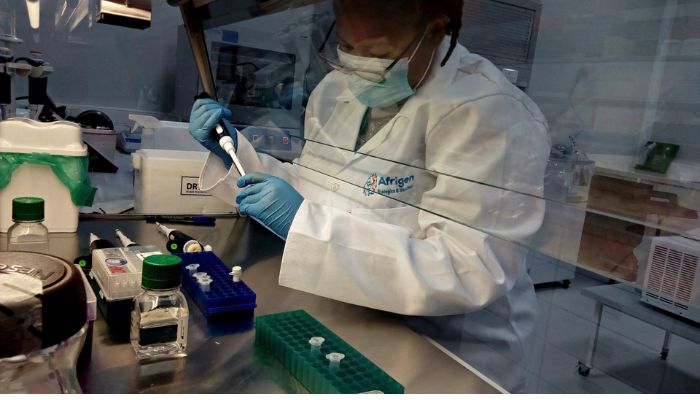Celebrating Women In Healthcare Network (WIHCN)
The voice on the phone on that fateful morning still haunts you to this day. You were enjoying a languid start to your day, having recently retired from the civil service.
From habit, you picked up the call on the first ring.
‘Good morning,’ the voice said, brusquely. ‘Is that the PermSec? This is Dr Stella Adadevoh. I need to reach Professor Omilabu, the virologist at LUTH, urgently. Could you please give me his number?’
Something in her voice made you pause.
Sensing your hesitation, she explained with slight impatience.
‘I think I may have a case of Ebola on my hands.’
All the alarm bells in your head started to jangle.
‘The man you need is the Director of Disease Control. His name is Longe. I’ll send you his number now.’
The Adadevoh name had fleetingly reminded you of an afternoon several years ago spent in conference with her father, the highly cerebral endocrinologist, former vice chancellor and sometime publisher, at his office overlooking the Bar Beach in Victoria Island, as he gently explained to you how a withering review from an older professional colleague of yours made it impossible for him to publish a collection from your Mental Health newspaper column in a book, though he liked it. The reviewer’s beef was that one of the pieces referred to Sigmund Freud as a ‘neurotic Austrian Jew’, which he considered disrespectful from a junior psychiatrist just entering the field. The great Sigmund Freud, your childhood hero along with Adeoye Lambo, was Austrian, Jewish, and indeed neurotic – suffering agoraphobia and psychosomatic symptoms, and for some years taking cocaine to relieve his symptoms, before he learnt that the medicine was worse than the disease. But that was another story.
It was the first and last time you would get to speak with Stella Ameyo Adadevoh.
Her next phone call, to the recommended destination, would trigger the celebrated Lagos emergency containment of the deadly Ebola virus, which has since become textbook material and the subject of ’93 Days’, a blockbuster Nollywood film. Stella held the fort for several hours, detaining the Liberian VIP who had brought the virus into Lagos and was showing suspicious symptoms in her Obalende hospital, and preventing him from going back into town and spreading the virus, despite relentless pressure and even threats from the man and his country’s ambassador.
By buying Lagos and Nigeria crucial hours needed to get the confirmation and containment protocol going, she saved hundreds, perhaps thousands, of lives.
But it came at a cost. In a few days, she and some of her colleagues in the hospital would be dead.
Women play a very important role in healthcare in Nigeria. In numbers, given the fact that the profession of nursing represents the line staff of healthcare, they outnumber men. However, their visibility and clout in the higher reaches of the various healthcare professions, both in the public and private sectors, seldom match this numerical strength or reflect the great achievements of amazons such as Adadevoh. The public does not get an accurate picture of the great contributions women make as the industry expands and modernises, incorporating information technology, telemedicine, artificial intelligence and an assortment of previously unrelated specialisations.
On Friday, October 31, at the Lagos Continental Hotel, a body of women known as the Women In Healthcare Network (WIHCN) held their second annual conference. The theme of the conference was ‘Rooted in Wellness, Rising with Purpose’.
According to Dr Modupe Elebute-Odunsi, initiator and Chair of the Board of Trustees, WIHCN emerged from a shared recognition by her and a group of her friends, following the COVID-19 interregnum, that women often provided the backbone of healthcare delivery, but they had little voice and little representation in leadership. Their contributions were seldom spotlighted. The friends resolved to form a body which would connect women, mentor the next generation, provide information and inspiration, and celebrate women’s achievements in both the public and private sectors.
Explaining the current Annual Conference’s focus on ‘Wellness…’, Dr Elebute-Odunsi averred
‘…when women are well and supported, the healthcare system becomes stronger.’
Self-care was not selfish but foundational.
There were inspiring speeches from the representatives of the Vice President, the Minister of State for Health and the Governor of Lagos State, among other notables.
In the main event, panels interrogated topics such as the place of AI in Healthcare.
The colourful ambience provided a conducive atmosphere for dialogue and interaction between different generations of healthcare personnel. There was space for fashion and beauty, which the organisers justified by asserting that healthcare was a whole-person journey, where fashion, wellness, and self-expression enhanced self-confidence and mental health. Women needed to show up and be leaders, not just in their clinics but in the outside world.
It was a day of learning and inspiration, laced with entertainment.
Beyond the Annual Conference, the WICHN expressed an intention to expand its mentorship framework and to continue to promote women’s visibility and wellbeing across all levels of healthcare in Nigeria and beyond. They would be happy to collaborate with other women’s groups, such as the Medical Women’s Association of Nigeria (MWAN).
Already this year, WICHN has held wellness initiatives and educational webinars on menopause and weight management, the power of the pelvis, and the sacredness of rest. They have launched a Speed Mentoring Programme connecting over 100 women across healthcare disciplines and collaborated with others for impactful initiatives such as ‘Banking on Women’s Health’ and ‘EmpowerHer: Women in Healthcare Forum’.
For Dr Modupe Elebute-Odunsi, scion of the famous Elebute family, the passion that drove her team to put their personal resources and energies into WICHN came from ‘…lived experience of the quiet heroism of women who keep the system running with grace and grit…When women…are well, they not only save lives, they transform communities…’
Stella Ameyo Adadevoh would have agreed with that last bit. May her soul continue to rest in perfect peace.

